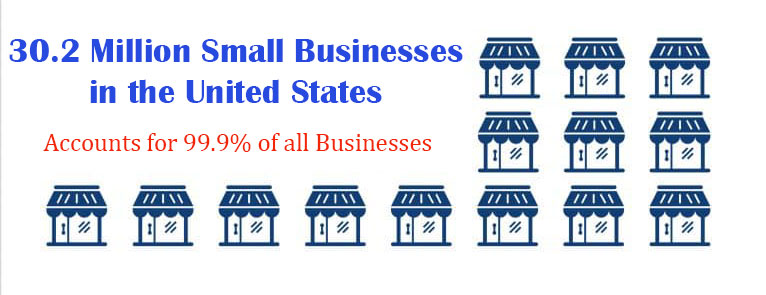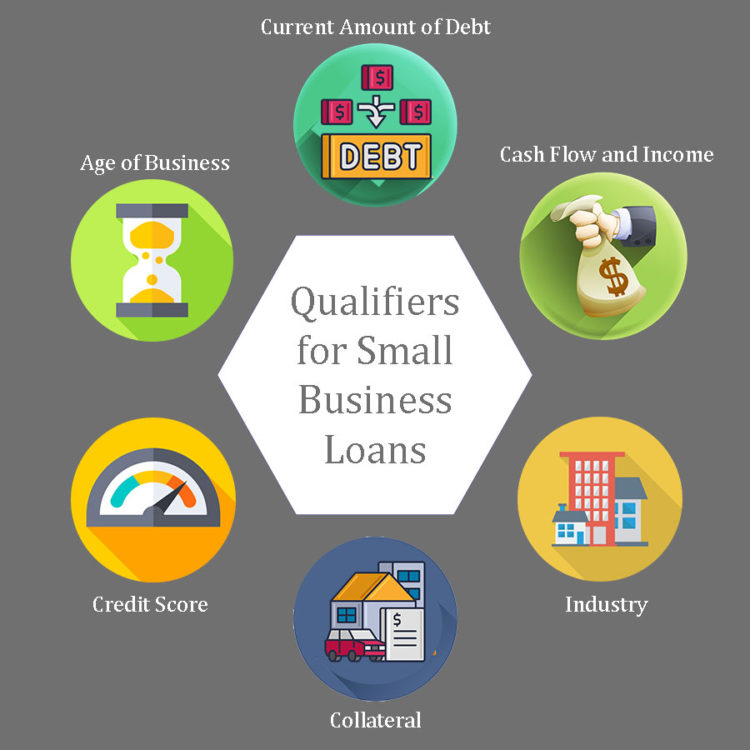
This country was built on the backs of small businesses. It's estimated today that there are 30.2 million smaller businesses in the United States, and that they make up 99.9% of businesses. (Small businesses are defined as having less than 500 employees.)

These include everything from restaurants to lawyers to mechanic shops to general contractors. These companies employ 58.9 million Americans, which is 47.5% from the workforce. And new business organisations account for nearly 100% of net job creation. (New smaller businesses account for most of that–after five years it starts to plateau.)

The one thing that of these companies have in common is they need money to begin their business. Whether it's purchasing a delivery truck or leasing an office space or hiring employees, all of these startup costs are daunting, even to probably the most enterprising entrepreneurs–the type who begin a business in their garage and then have to maneuver into something bigger.
So how can you make the leap? So how exactly does the tech company get free from their garage and into a workplace park? So how exactly does the catering service obtain a professional kitchen? So how exactly does the mechanic and the contractor buy new equipment?
The response is with Small Business Loans or Funding. As you can imagine, since so many new small businesses crop up each year, there are plenty of places you are able to turn to obtain a loan. The question is where you get the best loan and who's the very best lender for you.
The answer depends on what you're attempting to do, the way your financials look, and all the to produce that determine:
“Do I be eligible for a a small business loan?”
Six Main Qualifiers for Small company Loans
There are six main things that lenders take a look at if they are attempting to determine whether or not you will get a funding, whether you're high risk or low-risk. Those six things are:

Credit
When a small business owner would go to a lender to inquire about money, among the first stuff that the lender may need to look at is either the owner's personal credit rating (when the business is brand new) or the company's credit rating (whether it's been around for a long time). Nevertheless there is no solid number which will qualify you for any small company loan, an individual FICO score with a minimum of 650 is the norm.
Remember the most important stuff that affect your FICO score:
1 – Payment history (do you repay what you owe promptly, and just how long have you been paying them promptly),
2 – Credit utilization (of the quantity of credit you're entitled to, what percentage are you using),
3 – Length of credit history (are you brand new to the credit game, or do you have a recognised track record),
4 – New credit (have you recently applied for and received or been denied credit),
5 – Credit mix (what types of credit would you have–credit cards? Mortgage? Car loan?).
By building your credit in those five areas, you place yourself in a much better position to become eligible for a new loan.
Cash Flow and Income
Many lenders may need to look at your financial statements, particularly your Profit and Loss documents and your Balance Sheets. They would like to know how much money you're getting and how much of it is profit. The better situated your small business is, the less of a risk you'll appear to your lender, and the more likely they will be to approve you for a bigger and loan.
Remember, it's not only concerning the amount of money a lender would like to give you: it's also about the terms they're prepared to offer. A high-dollar loan with a high interest rate might not be as beneficial as a low-dollar loan having a a low interest rate rate. Be sure to compare rates and terms and don't just jump at the money offered.
Age of Business
This concept is similar to both credit and cash flow, in that a lender wants to see whether you have the chops for the long haul. They would like to observe that you've got a track record of earning money more than a year or two (or more) and you are not just a flash in the pan with a good idea and no business sense.
The longer you've been in business, the a lesser risk you'll seem to be, and also the more likely the lender will be to loan you the money that you need.
Current Quantity of Debt
While this really is a part of your credit rating, a lender will also look at the amount of debt you're already directly into see whether you are able to shoulder additional loan payments. If you are already paying a mortgage on the building, a few auto loans for work trucks, an equipment loan for heavy equipment, the lending company may not be so keen to offer you a lot more money unless you can prove you may make the payments promptly.
Remember: the lending company is gambling you and they are betting that you'll do well–they need you to definitely succeed–however they won't bet you if you're an excessive amount of a danger.
Collateral
Some loans will need you to definitely put up collateral for your loan. This is known as a secured loan, because it's made secure by the fact that the lending company has a guarantee they'll go back.
The collateral may be a car, a device, inventory, or even your individual home. This is a common practice and not something to become scared of–but it is important to be aware that if you can't manage to pay your loan you might not simply be out of employment, you'll be from a home, too.
Industry
During the loan process, the lending company will consider your industry to weigh whether or not you likely will succeed. For example, a successful CPA looking to expand her office would be considered a lesser risk than a completely new restaurant in a city that is over-saturated with restaurants. If the housing market isn't good, an over-all contractor might have a harder time obtaining a loan. And so on.
So to be eligible for a a loan, you have to be aware of all of these factors and ensure that you're doing your better to be a well-qualified candidate for your loan. We have professional waiting that will help you walk-through the procedure.
Start Your Free Application Now

